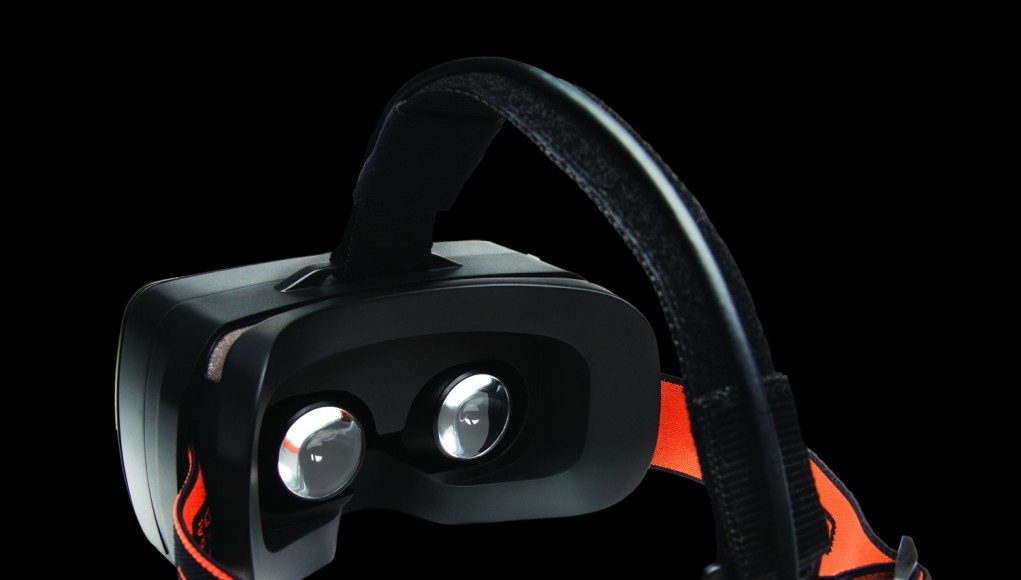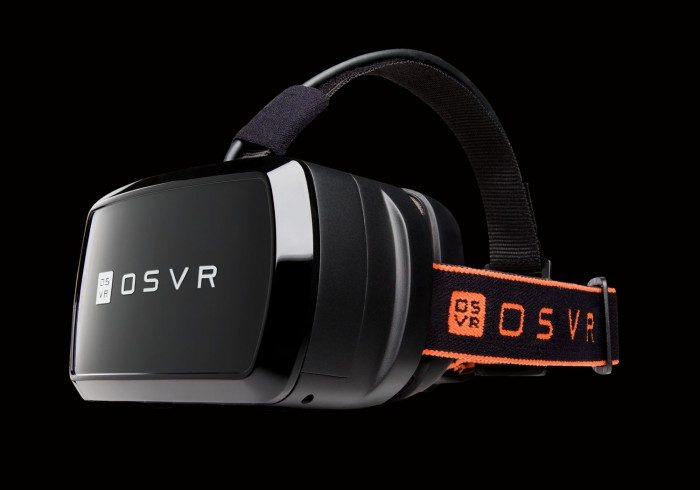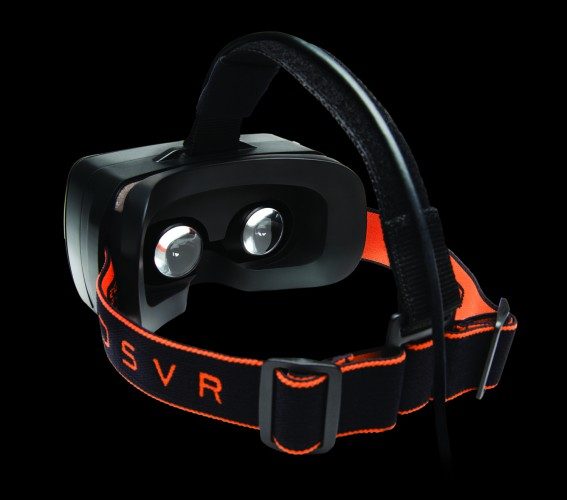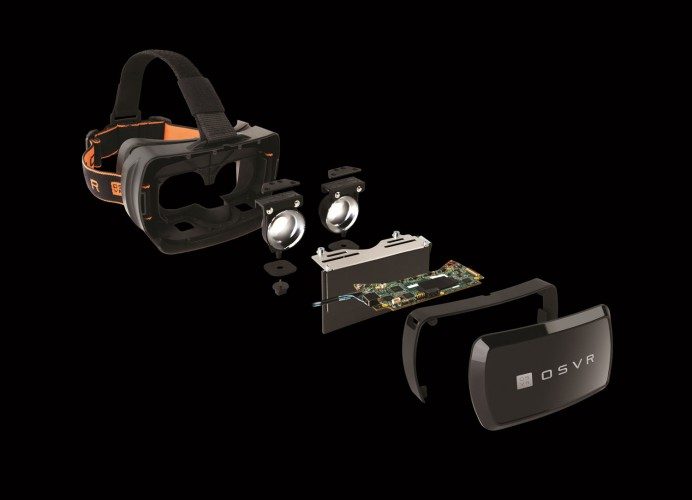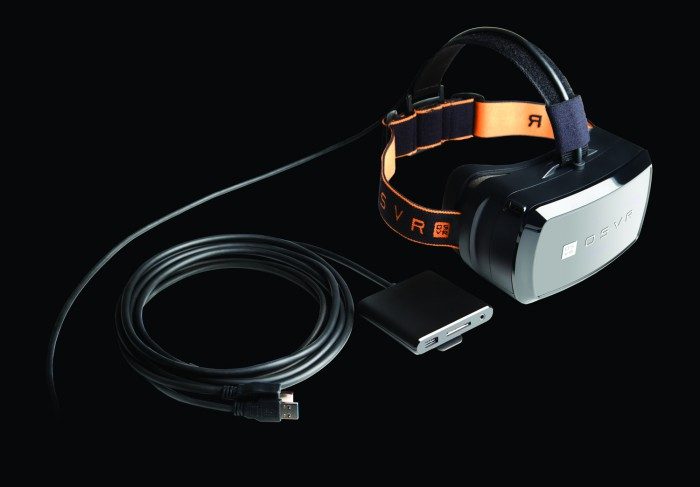Today Razer and Sensics, along with a bevy of VR industry supporters, have announced the OSVR (Open Source Virtual Reality) initiative alongside the $199 ‘Hacker Dev Kit’ VR headset which is due to launch this summer.
Hacker Dev Kit
The Hacker Dev Kit is an open source VR headset from Razer, designed with the help of Sensics a company that’s been working in the world of professional head mounted displays for more than 10 years. According to Razer and Sensics, the HDK VR headset will have a 5.5-inch 1920×1080 60Hz display with a 100 degree (diagonal) field of view. Hardware IPD and diopter adjustments will compliment the unit’s dual-element aspheric optics, freeing glasses users from the need to wear them while using the headset, according to the companies.
Sensics CEO Yuval Boger, who said that work started on this project some 18 months ago, tells me that the HDK VR headset is designed to be modular and hackable.
“Everything about this product is going to be open source,” he said. “You could make your own if you wanted to or you can hack it—we’re inviting people to hack it. If you just want the optics or you just want the board, you can go ahead. It’s designed to make it easy for the hacker.”
While the VR headset will be sold for $199, its entire design will be made available on the OSVR website so that the makers among us can build their own. The magnetic front cover will be an easy target for initial customization, allowing people to make their own by 3D printing or other means. The unit’s control box will have a USB 3.0 port for accessories while the headset itself will contain two USB 3.0 connections for internal expansion.
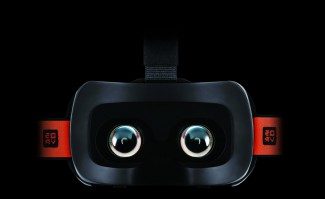 Boger tells me that the HDK’s dual-element lenses mean the elimination of the need for pre-warping and chromatic aberration correction.
Boger tells me that the HDK’s dual-element lenses mean the elimination of the need for pre-warping and chromatic aberration correction.
“The [Oculus Rift] DK2 only has one element, we have two, so we can control distortion, color separation, and blurriness.”
The Hacker Dev Kit VR headset doesn’t have positional tracking currently, but Boger says that anyone could add it easily thanks to the open source nature of the device and the OSVR framework that it will interface with—Razer and Sensics may even release a positional tracking module at some point.
The HDK VR headset release date and price is planned to be June, 2015 for $199.
OSVR Framework
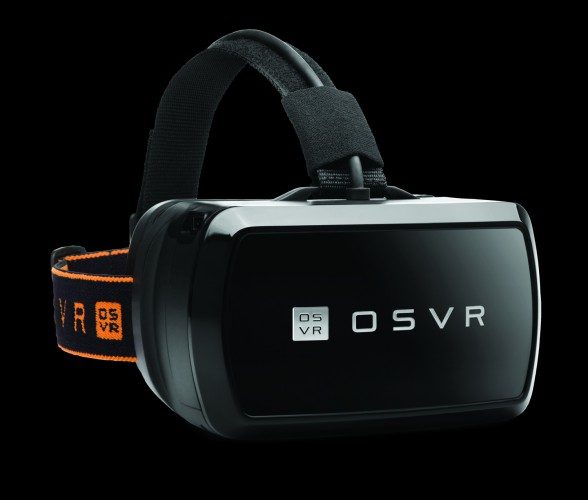 The Open Source Virtual Reality framework is the software that will enable the HDK, encompassing an SDK that’s designed to support multiple VR headsets, peripherals, and game engines. The companies are not beating around the bush with what they’ve set out to achieve with the imitative:
The Open Source Virtual Reality framework is the software that will enable the HDK, encompassing an SDK that’s designed to support multiple VR headsets, peripherals, and game engines. The companies are not beating around the bush with what they’ve set out to achieve with the imitative:
“OSVR is an ecosystem designed from the ground up to set an open standard for Virtual Reality input devices, games and output with the sole goal of providing the best possible game experience in the Virtual Reality space,” the companies say.
“Today if you’re a game developer, you have to decide if there’s enough HMDs on the market to write to one and then if you write to Oculus and you haven’t written for Sony, you haven’t written for Razer, etc. It’s a mess,” Boger said. “It reminds me that 20 years ago that if you wanted to use WordPerfect you had to make sure there was a printer driver. And then windows came along and printer drivers came along and as long as you have a driver for your printer, any application could write to it.”
Out of the gate, the OSVR has support from a handful of known companies in the VR and gaming sectors:
[one-third-first]
HMD Manufacturers
- Sensics
- Vrvana
- GameFace
Game Developers
- Gearbox Software
- Techland
- Bully Entertainment
- Untold Games
- International Game Developers Association
[/one-third-first][one-third]
Input Device Manufacturers
- Razer
- Leap Motion
- Nod Labs
- SensoMotoric Instruments
- Virtuix
- VRPN
- YEI
- Sixense
- Bosch
- Hillcrest Labs
- Pebbles Interfaces
[/one-third][one-third]
Others
- Otoy
- TrinityVR
- PrioVR
- Nextgen Interactions
- High Fidelity
[/one-third][clear]
The OSVR SDK, which is planned for public release in Q2, 2015, currently has support for Unity, with support for Unreal Engine 4 coming later in January, followed by HeroEngine and others further down the road. A plugin for the Oculus Rift DK2 is also planned to enable the headset to work with games and applications created with the OSVR SDK.
We’re expecting to get a chance to check out the Hacker Dev Kit and OSVR SDK in the very near future, stay tuned!

